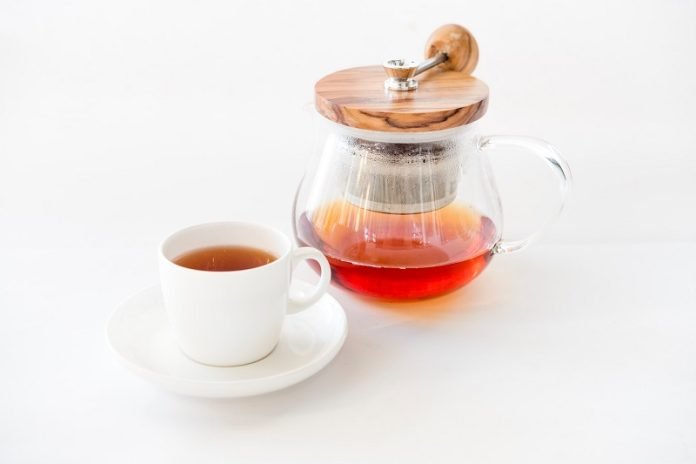
A recent study conducted by researchers at The University of Western Australia has shown that drinking a cup of black tea three times a day may significantly reduce blood pressure.
High blood pressure, also known as hypertension, is a major risk factor for heart disease.
If left uncontrolled, it can lead to heart attacks, strokes, and other serious health problems. Therefore, it’s essential to keep blood pressure levels under control.
While there is already mounting evidence that tea is good for heart health, this study’s findings are significant as they demonstrate a clear link between tea consumption and a major risk factor for heart disease.
The study involved 95 Australian adults aged between 35 and 75 who were recruited to drink either three cups of black tea or a placebo with the same flavor and caffeine content but not derived from tea.
After six months, the researchers found that compared with the placebo, participants who drank black tea had a lower 24-hour systolic and diastolic blood pressure of between 2 and 3 mmHg.
Blood pressure measurement consists of two numbers. The first is systolic and measures blood pressure when the heart beats or contracts to push blood through the body.
The second number is diastolic and measures the amount of pressure in between beats when the heart is at rest.
In the study, the researchers showed that black tea lowered both systolic and diastolic blood pressure.
The team said more research is needed to better understand how tea may reduce blood pressure, although earlier studies have already reported a link between tea drinking and the improved health of people’s blood vessels.
Drinking black tea may also offer other health benefits. For example, it contains antioxidants that can help protect against cell damage caused by free radicals.
These antioxidants can help reduce the risk of chronic diseases such as cancer and heart disease.
Moreover, black tea is rich in flavonoids, which are compounds that have anti-inflammatory properties.
Inflammation is a key contributor to many chronic diseases, including heart disease, so consuming foods and drinks that have anti-inflammatory properties is crucial for maintaining good health.
While drinking tea alone may not be enough to manage high blood pressure or prevent heart disease, it can be a useful addition to a healthy lifestyle.
Other lifestyle changes that can help manage blood pressure include maintaining a healthy weight, exercising regularly, and reducing salt intake.
Overall, the findings of this study are promising, and drinking black tea may offer an easy and enjoyable way to help reduce blood pressure and improve heart health.
How to prevent high blood pressure
Here are some ways to help prevent high blood pressure:
Maintain a healthy weight: Being overweight can increase your risk of developing high blood pressure. Therefore, it is important to maintain a healthy weight by eating a balanced diet and exercising regularly.
Follow a healthy diet: Eating a healthy and balanced diet that is low in salt, saturated fats, and added sugars can help prevent high blood pressure. A diet rich in fruits, vegetables, whole grains, and lean protein can also be beneficial.
Exercise regularly: Regular physical activity can help maintain a healthy weight, reduce stress, and lower blood pressure. Experts recommend at least 150 minutes of moderate-intensity exercise or 75 minutes of vigorous-intensity exercise per week.
Limit alcohol consumption: Drinking too much alcohol can raise blood pressure. Men should limit themselves to no more than two drinks per day, while women should have no more than one drink per day.
Quit smoking: Smoking can damage blood vessels and raise blood pressure. Quitting smoking can help improve overall health and reduce the risk of developing high blood pressure.
Manage stress: Chronic stress can contribute to high blood pressure. Finding ways to manage stress, such as practicing relaxation techniques, exercising, or talking to a therapist, can be helpful.
Get enough sleep: Getting enough sleep is important for overall health, including blood pressure. Most adults need 7-8 hours of sleep per night.
By following these steps, you can help reduce your risk of developing high blood pressure and improve your overall health.
If you care about blood pressure, please read studies about unhealthy habits that could increase high blood pressure risk, and people with severe high blood pressure should reduce coffee intake.
For more information about blood pressure, please see recent studies that early time-restricted eating could help improve blood pressure, and results showing plant-based foods could benefit people with high blood pressure.
The study was conducted by Jonathan Hodgson et al and published in the Archives of Internal Medicine.
Copyright © 2023 Knowridge Science Report. All rights reserved.



